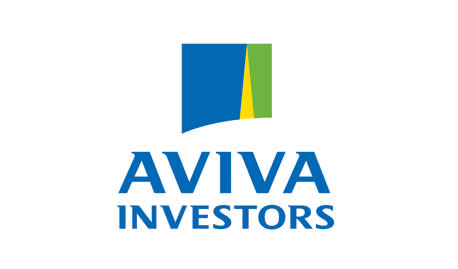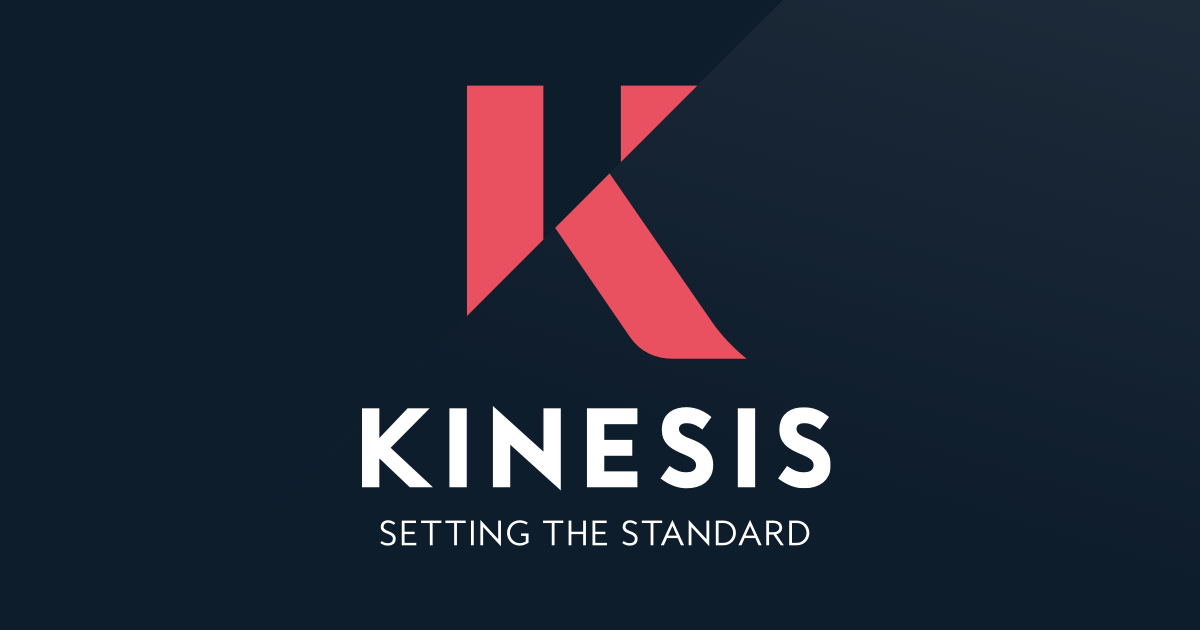Published
- 02:00 am

Aviva Investors, the global asset management arm of Aviva PLC (‘Aviva’), expects 2021 to be a year of economic recovery, with GDP reversing much of the unprecedented declines seen in 2020 as a result of the COVID-19 pandemic. The development of a number of effective vaccines changes the end-game of the crisis fundamentally, although there will be some difficult months ahead.
Resurgent waves of virus infection have compelled governments to impose renewed restrictions on activity to contain its spread. These will hurt growth in the fourth quarter and in early 2021, but not to the same extent as seen earlier this year. Later in 2021, uncertainty should fade rapidly, with a potentially potent combination of falling case numbers, re-opening of economies, extensive deployment of vaccines and ongoing policy support.
Sentiment should be boosted further as the contours of the “post-COVID” world become more apparent, allowing companies and households to plan more confidently for the future. The pandemic has demonstrated the resilience and adaptability of people and may have some lasting impacts on behaviour and working practices in the future.
Michael Grady, head of investment strategy and chief economist at Aviva Investors, said: “With a rapid and robust recovery expected in 2021, we prefer to start the year with a moderate overweight to global equities. Prices should be supported by the very strong outlook for corporate earnings growth in 2021.
“With central banks set to keep policy rates low and to maintain QE programmes, there is a limit to how much yields on shorter-maturity government bonds are likely to rise. But we do expect to see some steepening of yield curves as continuing fiscal support, alongside future growth and inflation expectations start to be priced into the market. We prefer to be slightly underweight duration, with a preference of US, UK, Italian and Australian bonds over core Europe.
“The scope for material excess returns from corporate bonds is expected to be more limited in 2021 after the significant tightening of spreads in 2020, though carry and roll down will still provide a stable income. We are modestly overweight the asset class, with a preference for US and Europe over Asia and UK. Within emerging markets, we prefer hard currency debt.
“In currencies, we expect a range of factors, including stronger global growth, reduced geopolitical tensions and wider US budget and trade deficits will lead to a further decline in the US dollar. We are more positive on the euro and yen.”
Related News
- 03:00 am

Which is more important for banks and fintechs in Latin America – cards or digital wallets? Cloud payment infrastructure or on-premises deployment? Unique offering or fast time to market?
Despite the complexities that COVID-19 brings to the market, 64% of banks and fintechs in the region anticipate increased funding for their projects. The new report by Omdia and OpenWay reveals innovation and investment priorities of payment providers in Argentina, Brazil, Chile, Colombia, Mexico and Peru.
The key findings of the report include:
- Profitability ranking of 10 issuing and acquiring activities in Latin America
- Top payment products and services in demand among regional consumers
- How investments in payments differ between major Latin American countries
- What technologies speed up digital payment innovations
178 traditional retail banks, neobanks, regulated payment fintechs and processors in Latin America contributed to a survey organized by Omdia and OpenWay in Q3 2020.
The resulting report sheds light on the current attitudes, business objectives, and challenges facing each respondent company, and on the role of investments in payments technology both now and in the future.
To download report, follow the link: https://www.openwaygroup.com/download-report-payments-in-latin-america/?utm_source=omdia&utm_medium=emailshot&utm_campaign=omdia-latam-2020&SQF_SOURCE=omdia&SQF_MEDIUM=emailshot&SQF_CAMPAIGN=omdia-latam-2020.
Related News
- 05:00 am

LocalBitcoins, the peer-to-peer bitcoin marketplace, today announced an expansion of their partnership with Onfido, the global identity verification and authentication provider, scaling the integration of Onfido’s AI-powered identity verification technology to securely verify the identities of customers signing up for and transacting on the LocalBitcoins exchange globally.
As the world has become more online over the past year, cryptocurrency activity has rocketed, as has the sophistication of fraud and the need to remotely verify identities at scale. The Onfido partnership expansion is helping to fight the most sophisticated fraud on the market, layering in Onfido’s Identity Verification and Known Faces solution.
Onfido’s award-winning AI technology will empower LocalBitcoins to set itself apart from other cryptocurrency marketplaces, creating a secure environment for trading without hampering the user experience for new joiners. For users opening an account, they simply take a photo of their government-issued identity document (ID) and a selfie to complete the verification process. Onfido first checks that the ID is genuine and is not fraudulent, and then matches it to the user’s face. This ensures the person presenting the identity is its legitimate owner and is physically present. Users looking to access higher trading volumes simply take a selfie video and a photo of their ID, giving LocalBitcoins more assurance in that user. Users are able to join the service more quickly and with a more user-friendly online experience that meets regulatory requirements.
The partnership has yielded immediate results:
● LocalBitcoins has reduced the time to onboard a customer to just 16 minutes
● LocalBitcoins has been able to accept and verify documents from 189 countries already
LocalBitcoins, launched in 2012, services over a million active users globally each year. They enable customers around the world to trade bitcoin easily and securely through over-the-counter trading of local currency in exchange for bitcoin. Essential to this is building a trusted environment between customers, as well as the LocalBitcoins brand; get security wrong and customers could lose their assets. Knowing their customers is therefore vital, both in terms of KYC requirements and preventing fraudsters from accessing the platform.
“In the world of cryptocurrency, security is our number one concern,” said Elena Umanets, Head of Investigations at LocalBitcoins. “LocalBitcoins is known in our market as the most secure marketplace out there. Onfido plays a big part in that, giving us confidence that our users are genuine at any stage in their journey with us.”
“We are very happy to be supporting LocalBitcoins’ vision to create a more trusted, secure crypto marketplace,“ said Reuben Sagar, Regional Director at Onfido. “We bring trust to digital interactions worldwide, and we’re excited to be partnering with a company that’s equally ambitious. We pride ourselves on delivering an experience that’s as rapid as it is robust, and look forward to helping LocalBitcoins scale this into new markets and use cases.”
Related News
- 07:00 am

Fenergo, the leading provider of digital transformation, customer journey and client lifecycle management (CLM) solutions for financial institutions, today announced findings from its global asset management research, which uncovered that while most firms feel that it’s important to have a digital transformation strategy, just over one third have reported completion (37%). Presently 44% are implementing artificial intelligence (AI) into their customer experience and over the next two years, half (53%) of asset managers expect to introduce robotics processing automation (RPA) and blockchain (47%).
The survey highlighted that the majority (84%) of asset managers have lost investors to digital-first disruptive competitors in the previous 12 months. Firms globally reported that an average 26% of investor applications were abandoned during onboarding due to inefficiencies in the previous year. In addition, asset managers (72%) see increased regulation due to the rise in financial crime as the biggest threat to their organization.
A key driver of transformation for most asset managers surveyed (67%) is the need to improve operational efficiencies, especially among those surveyed (82%) in APAC. The second biggest driver for change amongst firms globally is “increased competition from digital-first firms” (63%). When it comes to barriers towards digital transformation, the research found that asset managers (70%) cite “poor planning and preparation” as the biggest barrier to implementing digital transformation in their organizations. Asset managers also cited a “lack of accountability from the executive team” (67%) and a “resistance to change” (56%) as other barriers too.
Two thirds (60%) of firms globally have not completed their cloud readiness strategy and 58% of firms are prioritizing investment for cloud technology within the next year.
“Our research shows that while asset management firms are committed to digital strategies, they are clearly finding implementation a challenge, largely from a lack of accountability from the top and poor planning. Firms recognize how important it is to provide the optimal customer experience in an extremely competitive marketplace compounded by the pandemic and geopolitical uncertainty,” said Kevin O’Neill, Global Head of Asset Management and Asset Servicing and EMEA Head of Sales, Fenergo.
“Prior to the pandemic, asset managers were already faced with challenges around operational inefficiencies, increased regulatory scrutiny and the lure of digital-first competitors to younger investors. The research highlights that asset managers are losing investors and revenue opportunities due to inefficiencies. In today’s trading environment where operations mostly take place remotely, the need to digitally transform and streamline investor and product onboarding is critical. In this past year it has become clear that the adoption of innovative technology will increase efficiencies, streamline regulatory compliance while enhancing the investor experience. For the firms that fall behind the future looks ominous.”
The research, which was conducted by global business advisory firm FTI Consulting, surveyed the opinions of 174 senior decision makers at Asset Management firms across the EMEA, North America and APAC.
Related News
- 03:00 am

There’s been a surge in Sovcombank customers aged 45 and older who opt to exclusively rely on a phone and mobile application for contactless payments. Three times as many customers from that age group use only contactless payment*, rising to 14% of the total number of the bank's card clients compared to just 5% two years ago.
Mobile app audience is rapidly growing older
Further, the average age of Sovcombank customers who only pay with a smartphone is rising. As of October 2020, it was 39 years, compared to an average age of 35 in October 2018. The largest growth in “digital” customers was in clients aged 45+, a group whose share increased by 18% in two years.
Another Sovcombank client demographic demonstrating significant growth is young people in the bank card segment since 2018. The drivers of this growth are inclusion of shops popular among this demographic to the Halva's network of partners and more favourable cashback conditions for payments made via NFC*-enabled smartphones.
Married adult women are most active "digital" clients
Women are the key factor behind the growth in older customers using solely contactless payments. In 2018, 53% of "digital" clients were men, a share that dropped to 49% in 2020 as the share of women increased to 51%. In parallel, the share of married people who opt for contactless payments exclusively has grown to 77% of married men and 71% of married women, up from 71% of married men and 66% of married women.
Northernmost regions of Russia are leaders in digitalisation of bank clients
Arkhangelsk, Murmansk, Magadan regions and the Komi Republic are the regions showing the largest spread of clients choosing a contactless payment method using NFC. Moscow remains in the top five, but the Arkhangelsk region replaced Moscow at the top of the list of regions with the highest concentration of customers who prefer contactless payment. In Arkhangelsk Oblast, a quarter of all active Sovcombank's clients only use a smartphone to purchase goods and transfer money.
The regions with highest concentration of customers who prefer contactless payment:
1. Arkhangelsk Oblast (24%);
2. Moscow (22%);
3. Komi Republic (19%);
4. Murmansk Oblast (19%);
5. Magadan Oblast (18%).
* Customers who, in the past 12 months, have made over 98 per cent of card transactions using an NFC-enabled smartphone or a mobile application.
Related News
- 03:00 am

Kinesis, the monetary system, based 1:1 on allocated physical gold and silver, today announces the launch of its physical Visa card to expand the real-world utility of the Kinesis platform.
Building on the success of its globally used virtual Visacard, Kinesis wanted to continue to integrate the Kinesis systems into everyday banking. As such, it has rolled out its physical Visa card and accompanying banking systems to the US market ahead of the wider regional release.
As with the virtual card, this can still be used to send gold across the globe in seconds with minimal transaction costs. However, because the card has a bank account attached to it, it offers cardholders the functionality of a debit card, including payments, deposits and transfers as well as cash withdrawals. People can also be paid salaries directly into their Kinesis account and, using the Kinesis Money system, users can store their assets in gold and convert it to cash in seconds when needed. It can receive top ups of up to $20,000 as opposed to the $500 for the virtual card. This can all be managed in the newly redesigned interface of the Kinesis online and mobile platforms.
The new banking functionality of the system can also facilitate financial inclusion. People can often lose their bank accounts because of poor credit, so this provides an option for for everyday financial purposes, such as paying bills, shopping and receiving funds.
Thomas Coughlin, CEO of Kinesis, said: “Our precious metals-based monetary system is honest, fair, ethical and sustainable. By integrating Kinesis with modern banking systems, our aim is to make it available to everyone. It’s not that fiat currencies will become redundant, they already are. Right now with the macroeconomic environment, people are looking for safety & security , so why not keep your money in gold when you can use it day-to-day just like any other currency. It means you can instantly convert and withdraw what you need, seamlessly in one platform. That’s why we’ve launched in the US first: not only is it a large market with growing inflation, but people are also bought into the value of gold – it’s even legal tender in many states. We’re pleased to have ticked off another successful milestone of our 2020 roadmap, with lots more on the horizon.”
Related News
- 09:00 am

3d innovations (3di), a data management solutions company, today announced that it has acquired Charlotte-based Investment Data Licensing Advisors (IDLA), a market and investment data licensing advisory firm serving the U.S. market. The acquisition follows demand from investment firms and market data vendors for more bespoke and creative solutions that leverage best practices when managing data selection, usage risk and costs, and sees the firm expanding its global reach. As part of the agreement, John White, IDLA principal, will lead the company as newly appointed 3di CEO.
IDLA provides investment managers and other market data consumers with a comprehensive, integrated data solutions program that improves risk management and reduces cost, while optimizing data and reporting. The team counsels data vendors and exchanges on commercial policy and distribution programs that create sustainable growth, and provides M&A transaction advice.
Following the acquisition, IDLA and all assets and resources will be fully absorbed into 3di, enabling a more evolved and robust set of 3di software and services over time. Clients will gain more depth of industry knowledge and additional executive level negotiations experience as 3di expands with new offices in Charlotte, North Carolina and Fort Lauderdale, Florida in addition to existing offices in New York, London and Amsterdam.
Stephen Veasey, COO/CFO and Founder, 3di, said: “We’ve experienced tremendous product growth this year due to the emphasis on having to work remotely and the need for robust online intelligence tools. We enjoyed a long and successful client-supplier relationship with John White during his tenure at State Street and LSEG and partnered very early on with IDLA when he started the venture. It became clear that our common expertise, values and vision with respect to enterprise market data management, made for a very obvious corporate combination of the two companies. This experience also makes John the perfect candidate to lead as CEO of 3di.”
John is a recognized market and reference data executive with more than 35 years’ experience across the investment data industry. Prior to founding IDLA, he served as managing director and global head of market data and distribution for the London Stock Exchange, and held senior level data roles at State Street Global Advisors, Columbia Management Group and Wellington Management Company where he managed large market data licensing budgets and data quality teams. Because of his experience on both sides of the industry, John offers a unique perspective that is invaluable to consumers and sellers of data.
“The demand for integrating various industry best practices when it comes to managing data spend and data vendor commercial policies is evolving quickly,” said John White. “In fact, we predict that leveraging a robust set of tools and policies along with a collaborative vendor negotiation strategy are key to our clients’ ability to optimize the value of their data services spend.”
“We already have very strong and aggressive plans for 2021. These include more acquisitions, new product offerings and expansion into new geographies,” he continued. “I look forward to leading the highly talented 3di team as part of our sustainable growth strategy.”
Related News
- 07:00 am

Once again, Hamburg-based FinTech TrustBills is disrupting the factoring market: From January 11, 2021, the marketplace for unpaid trade receivables will offer companies a sell-off guarantee (Put option). This means that companies that already know that they will be regularly supplying a customer over a certain period of time can get a guarantee to sell-off these receivables up to a defined amount to an institutional investor such as insurance companies, pension funds and their asset managers, banks and factoring companies in return for a Put option premium.
"Before the Coronavirus pandemic, companies were focused on reducing their cost of capital. This meant that investors were competing for the most attractive assets. Since the second wave, however, this has changed: Investors have adjusted their risk appetite and receivables financing for companies has become more difficult, not least due to the precautionary measures taken by many credit insurers," explains Joerg Hoerster, founder and CEO of TrustBills. At the same time, companies need planning reliability right now - but without the negative attributes of classic factoring. What Hoerster alludes to: In traditional factoring, companies enter into framework agreements that are not always advantageous for the selling companies. There is hardly any pricing transparency, for example, but almost always obligations to tender and, due to the retention, there is rarely any real balance sheet relief. With TrustBills, this is completely different, emphasizes Hoerster: "Anyone who decides to use TrustBills Receivables Exchange can decide with complete flexibility which volumes are to be sold and over what period of time."
The Hamburg-based company has been revolutionizing the factoring market since 2017. Even without the new Put options, customers can sell their unpaid B2B invoices to institutional investors either at a fixed price or via the auction on TrustBills Receivables Exchange. Whether the sale is undisclosed or disclosed is up to the companies. In any case, invoicing is automated in the same way as tax treatment, payments and, if necessary, dunning.
"The addition of Put options to our marketplace was the next logical step," says Hoerster. After all, TrustBills Receivables Exchange combines security with a transparent bidding competition anyway. With Put options, companies still remain flexible, but could increase planning reliability within their liquidity management.
The subsequent process is - as always with TrustBills - simple and transparent: specify the debtor, define the desired period and required financing volume and wait for the investors' financing offers to arrive. Once the company has confirmed an offer from an investor, it is guaranteed to be able to sell its receivables against the specified debtor within this framework. The trick is: Each individual receivable goes into a bidding competition among investors despite the Put option, so that companies can be sure of getting the best price for each receivable. Only if no investor outbids the financing partner of the Put option the receivable is sold within its framework.
Related News
- 03:00 am

FreedomPay, a global leader in Next Level Commerce™ today announced a new strategic partnership with Kount, the leader in fraud prevention and identity trust, to offer a fully integrated Identity Trust solution built into FreedomPay’s data-driven commerce platform. Together, the two companies offer businesses of varying sizes, geographies, and verticals a purpose-built fraud prevention solution that adapts to the constantly evolving digital environment.
FreedomPay and Kount’s portfolio solution fully integrates Kount’s leading, AI-driven payments fraud prevention solution, Kount Command. Powered by the Identity Trust Global Network, Kount’s solution enables businesses to accept more orders while reducing false positives, reducing manual review rates and slashing chargebacks, ultimately delivering a genuinely superior customer experience.
As a leader in connected commerce, FreedomPay is rapidly expanding on a global scale across key verticals such as Retail, eCommerce, Hospitality and Food & Beverage. With this partnership with Kount, FreedomPay customers globally will enjoy an integrated, complete solution to enable international expansion with fraud-free payments and frictionless customer journeys, all while achieving PSD2 compliance and 3DS2 authentication.
In addition, the FreedomPay and Kount partnership goes beyond payments fraud prevention and will also provide businesses access to Data on Demand, Kount’s private data warehouse. This enables businesses to have actionable customer insights and analytics in order to inform proactive initiatives and drive revenue. Customers will also have access to a variety of other unique Kount products and solutions, such as Near Real-Time Chargeback Prevention and Professional and Managed Services.
“Especially around this holiday season, fraud prevention is a primary concern for businesses across all industries, ” said John Mansfield, SVP, Global Business Development at FreedomPay. “Our partnership with Kount will assure all merchants on FreedomPay’s Commerce Platform that purchases are fraud-free, which will also provide a fast and frictionless experience for the end-user.”
“At Kount, we are excited about the advanced and differentiated value proposition our joint solutions will bring to the market globally,” said Tom War, Chief Sales Officer at Kount. “With this new partnership, Kount and Freedom Pay customers can leverage best-in-class fraud prevention via one integration, empowering them to improve authorization rates, improve the customer experience, and comply with industry regulations. Further, customers take advantage of industry-leading products and solutions including Kount’s Data on Demand and Near-Real Time Chargeback Prevention.”
Related News
- 01:00 am

Fime’s EMV 3DS Test Platform has been qualified and its lab accredited by EMVCo for Software Development Kit (SDK) type approval testing for Android and iOS apps. This supports SDK providers and the acceptance ecosystem to bring the frictionless, strong customer authentication (SCA) of the latest EMV 3DS protocols to in-app purchases.
This further expands Fime’s EMV 3DS testing services, alongside ACS and 3DS Server v2.1 and v2.2 accreditations. The 3DS Test Platform is powered by Fime Test Factory, the user-friendly cloud-based portal which enables automation, digitalization and customization throughout the testing process to save customers time and money. Fime’s experts support every step of EMV 3DS projects, defining strategies for migration, implementation and upgrades.
Raphaël Guilley, VP Testing Solutions at Fime, comments: “Omnichannel is key to merchant strategies and authentication needs to be smooth, secure and consistent, no matter where the customer chooses to checkout. This accreditation, combined with our expertise and innovations like our test application, gets SDK development and compliance projects moving faster and smoother.”
Learn more about how we are accelerating EMV 3DS compliance to enable secure, frictionless customer authentication.
*EMV® is a registered trademark in the U.S. and other countries and an unregistered trademark elsewhere. The EMV trademark is owned by EMVCo, LLC.









